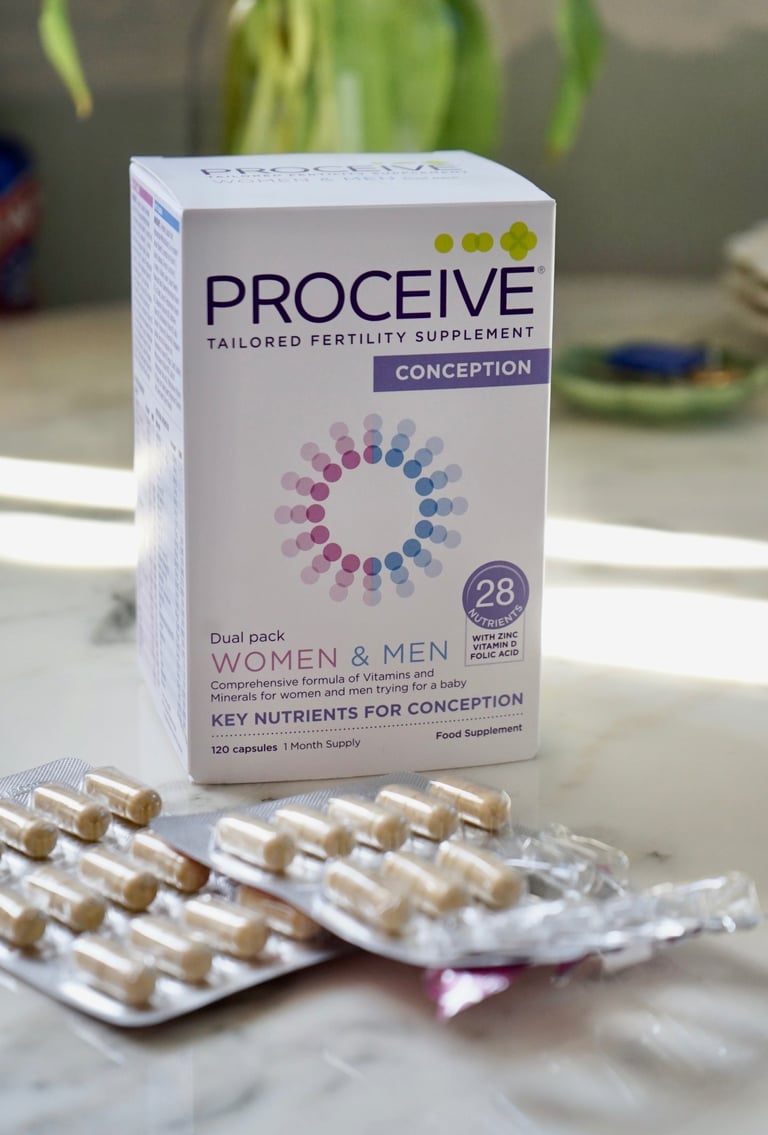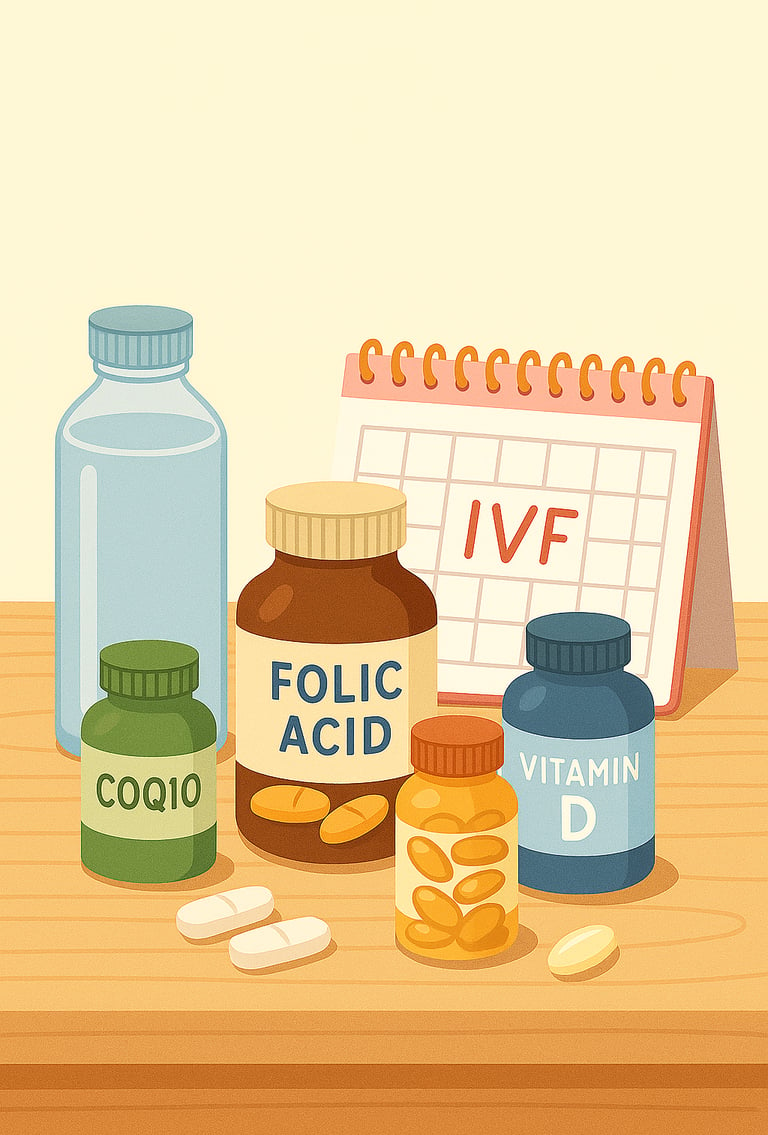Should I Take Supplements During IVF? A Complete Guide for Women and Men
A science-backed guide to why supplements matter for IVF, when to start taking them, and which ones are most important for both men and women.
WELLNESS & FOOD


When your IVF journey begins, one of the first things your clinic may recommend is to start taking fertility supplements. And not just for women — men, too.
When I was accepted to start IVF and had the first phone call with the fertility nurse she said to start taking them straight away, not just me but also my partner. I told her which brand I took and she said they were very good. These are the ones I took. It's a pack for BOTH men and women. Blue section for men, and pink section for women and they are specifically for the period BEFORE you are pregnant. I recommend a pre made pack because you don't risk accidentally take the wrong dose or having supplements contradicting with each other.
Why take supplements? Because supplements help prepare your body for what’s to come — and can even influence your chances of success. This blog post explains why fertility supplements are important, which ones are commonly recommended, and when to start taking them.
Whether you're just starting IVF or gearing up for your next cycle, this is your go-to guide for getting your body supplement-ready.
Why Supplements Matter in IVF
IVF is a carefully timed process that relies on healthy eggs, quality sperm, and the right environment for implantation. While supplements won’t solve medical infertility on their own, they can:
Improve egg quality and sperm health
Support hormonal balance
Enhance uterine lining health
Reduce inflammation and oxidative stress
Fill dietary gaps in nutrients essential for conception
Think of it as giving your body the best possible conditions for IVF to work.
👉 Related: What Is AMH and Why Does It Matter?
When Should You Start Taking Supplements?
Ideally, you should begin at least 1–3 months before starting your IVF cycle. Why?
Because eggs and sperm both take time to develop.
Eggs mature over ~90 days before ovulation
Sperm regenerates every ~70–90 days
Starting early means you're supporting the actual eggs and sperm that will be used during your IVF cycle.
Which Supplements Are Recommended for Women?
Most Common IVF Supplements for Women:
Folic acid (400–800 mcg) – helps prevent neural tube defects
Vitamin D (10–25 mcg) – supports hormone function and implantation
Omega-3 (DHA/EPA) – anti-inflammatory, may support egg health
CoQ10 (Ubiquinol form) – supports mitochondrial function and egg quality
Inositol (especially for PCOS) – supports insulin and ovulation
Iron (if low) – supports blood flow and uterine lining health
Vitamin B12 – supports cell development and energy metabolism
Zinc & selenium – protect against oxidative damage
👉 Read next: The IVF Diet: What to Eat for Each Phase
Which Supplements Are Important for Men?
Sperm quality matters just as much as egg quality — and men are often overlooked in the supplement conversation.
Key IVF Supplements for Men:
Zinc – crucial for testosterone and sperm production
Selenium – improves motility and sperm integrity
Vitamin C & E – powerful antioxidants
CoQ10 – improves sperm count and motility
L-Carnitine – boosts sperm energy and motility
Vitamin D – supports overall fertility
Omega-3 fatty acids – improve sperm shape and quality
Folic acid (lower dose) – may support sperm DNA
👉 Related: Male Factor Infertility: What Tests Are Done?
What About IVF-Specific Fertility Supplements?
There are many fertility supplement brands in the UK designed specifically for IVF, often combining multiple nutrients in one formula.
Popular brands include:
Proceive
Zita West
Viridian Fertility
Wild Nutrition
Pregnacare Conception / Him & Her
Be cautious of expensive "IVF booster kits" that contain little evidence. Check with your consultant or fertility dietitian before taking high-dose blends.
Supplements Are Helpful — But Not Magic
It’s important to remember:
Supplements support, but don’t replace a healthy diet
They won’t guarantee a successful IVF outcome
They should be part of a wider preconception plan, including nutrition, sleep, and lifestyle changes
If you're already overwhelmed with meds, scans, and schedules, just start with the essentials — folic acid, vitamin D, and CoQ10 (or your clinic’s base recommendation).
It's good to stick to a pack of pre put together vitamins, as if you take the wrong ones mixed, they might actually harm more than help.


© 2025. All rights reserved.
